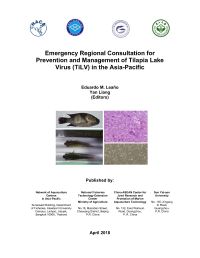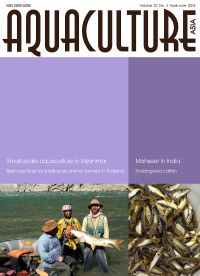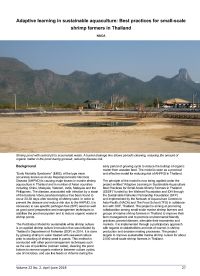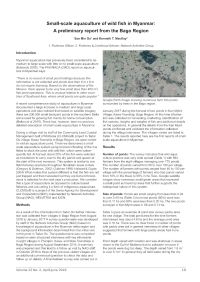Since 2009, tilapia aquaculture has been threatened by mass die-offs in Israel and Ecuador, caused by a novel Orthomyxo-like (RNA) virus named Tilapia lake virus. An Emergency Regional Consultation for Prevention and Management of Tilapia Lake Virus in the Asia-Pacific was undertaken in September 2017, China, to discuss and plan actions on the overall prevention and management of the disease, and to prevent its further spread. These are the technical proceedings of the workshop.
The 7th Global Conference on Gender in Aquaculture and Fisheries (GAF7) will be held from 18-20 October 2018, at the Asian Institute of Technology, Pathum Thani, Thailand. The GAF7 website and a conference brochure are now available. Submission of abstracts has been extended to 15 May.
Mahseer in recreational fisheries and ecotourism in India; Small-scale aquaculture of wild fish in Myanmar: A preliminary report from the Bago Region; Current know how and possibility for growout culture of an endangered catfish, Horabagrus brachysoma; Accelerated poverty alleviation of tribal households - cage fish farming by displaced fishers in reservoirs of Jharkhand; Adaptive learning in sustainable aquaculture: Best practices for small-scale shrimp farmers in Thailand; NACA Newsletter.
Early mortality syndrome of the type more accurately known as Acute Hepatopancreatic Necrosis Disease is causing major losses in marine shrimp in a number of Asian countries. The disease is associated with infection by a strain of the bacteria Vibrio parahaemolyticus. Here we describe a project to reduce the incidence of disease and improve crop outcomes for small-scale farmers in Thailand via an adaptive learning approach, implemented in association with farmer societies and collectives.
Myanmar aquaculture has previously been considered to be medium to large scale with little to no small-scale aquaculture. Here we report on an indigenous small-scale aquaculture system in Myanmar based on natural monsoon stocking of rice fields with wild fish, which are subsequently trapped, fed and grown out, with a portion used as broodstock to supplement the next years production. The practice is widespread and interviews with farmers suggest that it has been in place for at least 40 years.



